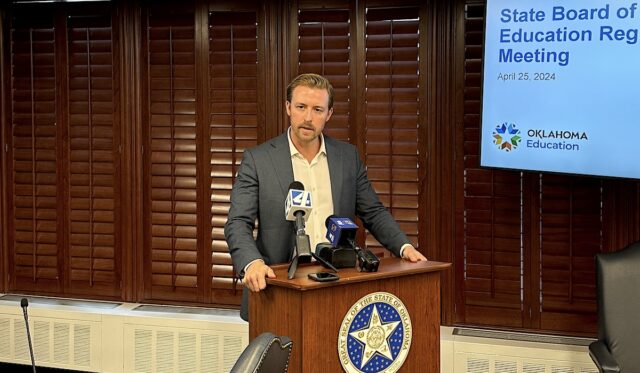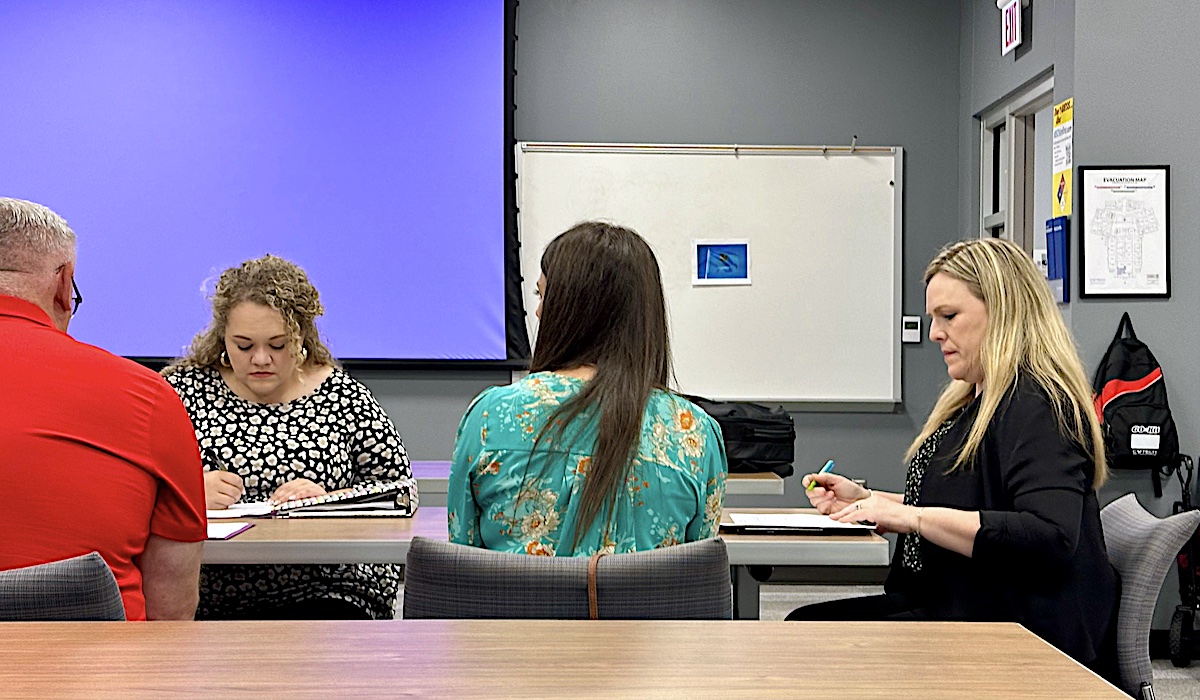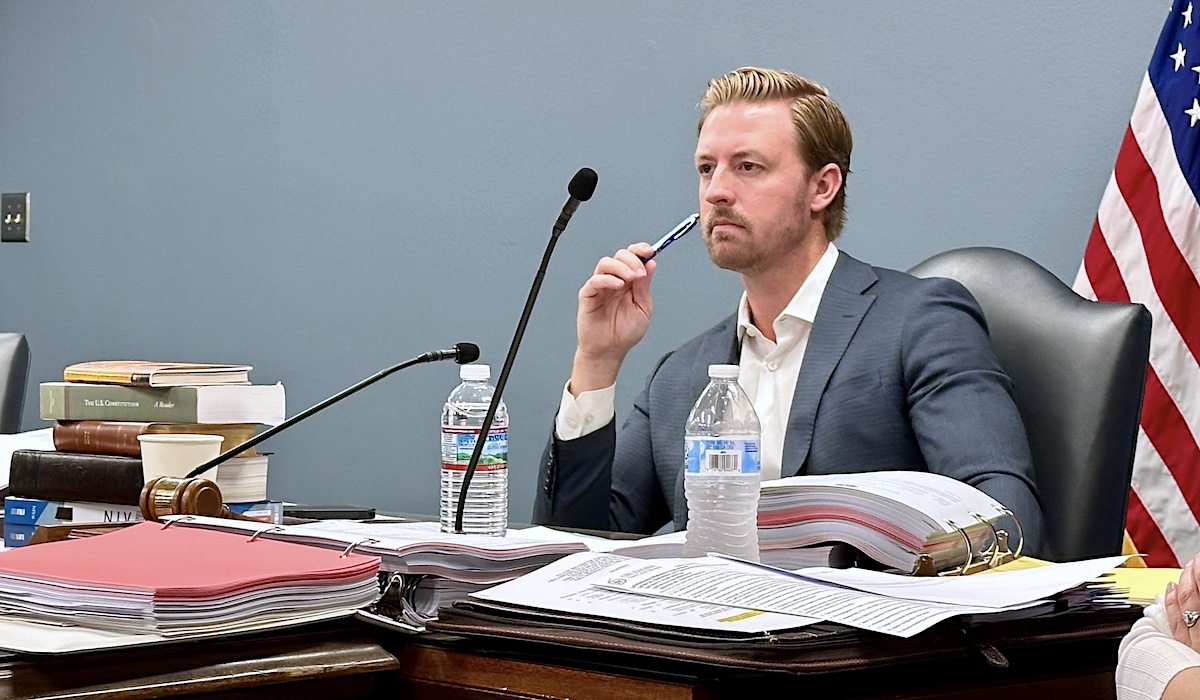
Around the Oklahoma City metro area, public school districts have had mixed responses for how best to comply with a recent directive from State Superintendent of Public Instruction Ryan Walters purportedly requiring schools to place Bibles in classrooms and teach from the religious text.
Meanwhile, a local education-focused law firm has addressed a one-page letter to all 500-plus Oklahoma public school district superintendents advising them that Walters’ directive likely stands on dubious legal grounds.
Superintendents in Norman, Yukon and Deer Creek have all said they do not plan to make changes to their districts’ curriculum in response to Walters’ directive, and they have emphasized the broad local control given to district school boards to determine curriculum and teaching resources.
As reported July 11 by Archiebald Browne of the Norman Transcript, Norman Public Schools Superintendent Nick Migliorino may have had the strongest reaction to Walters’ memo so far.
“I’m just going to cut to the chase on that. Norman Public Schools is not going to have Bibles in our classrooms, and we are not going to require our teachers to teach from the Bible,” Migliorino told The Transcript.
Other district superintendents have offered similar responses.
At Deer Creek Public Schools, Superintendent Jason Perez emphasized that state statute gives local school boards express control over district curriculum. Although Title 70, Section 11-103.6a says the State Board of Education shall adopt “subject matter standards” that “shall be implemented statewide by every public school district,” subsection F also states:
School districts shall exclusively determine the instruction, curriculum, reading lists and instructional materials and textbooks, subject to any applicable provisions or requirements as set forth in law, to be used in meeting the subject matter standards. School districts may, at their discretion, adopt supplementary student assessments which are in addition to the statewide student assessments.
“It’s really the individual district’s prerogative, you know, made by the local control there, as far as what textbooks they’re going to adopt and how we’re going to teach the state standards,” Perez said in an interview with NonDoc.
Yukon Public Schools Superintendent Jason Simeroth made a similar point in an interview.
“What we do — and what we’ve always done — is we teach the Oklahoma academic standards just like they’re passed by the state Legislature,” Simeroth said. “One of the things that you’ve seen over the last few months is the courts have supported the local board decisions on what textbooks or novels or anything like that goes into school districts, and so that’s what we’re we’re going to continue to do.”
As Simeroth alluded, the Oklahoma Supreme Court recently sided with Edmond Public Schools and issued a writ of prohibition stopping an attempt by Walters and the State Department of Education to force EPS to remove two books from its libraries.
Simeroth said he does not expect Yukon Public Schools to make any changes in response to Walters’ directive.
“We trust our teachers to use the curriculum as it’s intended to help our kids achieve,” Simeroth said. “We don’t plan to make any changes in what we currently — the resources that we provide for our staff.”
Perez echoed Simeroth’s statement for Deer Creek.
“It’s already established both in Oklahoma state statute as well as in our district’s board policy that teachers already have the flexibility to use religious literature to support the state curriculum as long as it’s appropriate, so nothing really changes in that context,” Perez said. “But as far as like an expectation for Deer Creek teachers to teach directly from the Bible, that’s not something that we foresee happening in our district anytime soon.”
In a July 18 back-to-school letter sent to Moore Public Schools families, Superintendent Robert Romines also emphasized his district’s adherence to Oklahoma academic standards.
“The current standards acknowledge the significant influence of various religions in the development of world history and culture,” Romines wrote. “MPS students have been and will continue to be allowed to bring their own religious texts, including the Bible, and additionally, are not prohibited from using their library access and/or district-provided technology devices to access religious texts. However, it is important to clarify that while students learn about religion’s role in historical and cultural contexts, teaching any specific religious doctrine or practice is not a part of the current standards.”
Other school district leaders have been more hesitant to take a stand, such as El Reno Public Schools Superintendent Matt Goucher.
“We don’t want to get into that,” Goucher said. “We’re just about educating our kids the best we can, and I just don’t want to comment on those things right now.”
Despite Edmond Public Schools’ recent court victory on the issue of school libraries, EPS spokesman Jeff Bardach declined to comment about Walters’ latest parochial pronouncement.
“We don’t have anything to add at this time, so we aren’t commenting about it,” Bardach said.
In an email, Mustang Public Schools’ executive director of communications Kirk Wilson said the district is awaiting further guidance on the new directive.
“As a district, we are committed to providing our students with a comprehensive and well-rounded education while respecting our community’s diverse beliefs and backgrounds,” Wilson said. “Our priority is to ensure that any changes to our curriculum or classroom practices comply with state regulations and uphold our commitment to an inclusive and respectful learning environment.”
After the July 15 Oklahoma City Public Schools Board of Education meeting, district media relations manager Crystal Raymond said new Superintendent Jamie Polk would not answer questions about Walters’ memo regarding Bibles in classrooms. Instead, Raymond emailed a statement.
“As we continue to prepare for the coming school year, district teams are evaluating this new directive while also carefully considering its implications for OKCPS. We look forward to additional guidance from OSDE,” Raymond said in the statement. “One of the greatest strengths of OKCPS is our diversity, and we will continue to uphold the values of inclusivity and respect for the religious beliefs and cultural backgrounds of all staff, students and families.”
Western Heights Superintendent Brayden Savage did not return a phone call seeking comment prior to publication of this article. A phone call to Tulsa Public Schools also went unanswered, and a spokeswoman for Mid-Del Public Schools declined to comment.
Lawyers: Ryan Walters Bible directive ‘without legal authority’

As districts weigh their options ahead of the 2024-2025 school year starting in August, the Oklahoma City-based Center for Education Law sent a July 12 memorandum (embedded below) to “district superintendents” arguing that Walters’ new directive is likely “invalid.”
“It is our opinion that the (Walters) memo is without legal authority and invalid under Oklahoma law because the Legislature requires school districts to develop and implement curriculum, courses, and instruction,” wrote attorneys Andrew Fugitt, Laura Holmes, Justin Cliburn, Jeffrey Scott, Belinda Tricinella, Laura Homgren-Ganz and David Kinney.
The lawyers also argued the directive is further discredited by the fact that the State Board of Education has taken no action on mandating Bible instruction in schools.
RELATED
Walters begets Bible brouhaha, Boren denied executive session entry by Megan Prather
“While SBE is exempt from the [Administrative Procedures Act] when adopting subject matter standards, the passage of subject matter standards requires SBE action and this was not an action taken by SBE but a memorandum by the state superintendent of instruction,” the lawyers wrote.
To that end, State Board of Education member Kendra Wesson declined to discuss the Bible curriculum directive July 16 during the lunch break of a State Textbook Committee meeting in Yukon. Wesson is Walters’ designated chairperson for the committee.
“I’ll stay out of that one,” Wesson said. “I try to do what’s best for Oklahoma’s kids.”
Walters, for his part, attempted to cite some authority in his directive.
“This directive is in alignment with the educational standards approved on or about May 2019, with which all districts must comply,” Walters wrote in the June 27 memo.
In response to an email seeking clarification as to what “educational standards” Walters was referring, OSDE spokesman Dan Isett provided a link to the Oklahoma Academic Standards page of the department’s website. According to the OAS page, the state’s social studies standards were last revised and approved by the Legislature in May 2019.
In those standards, the word “Bible” does not appear, and the word “Christianity” appears once as a world history standard stating that students should be able to discuss the origin and impact of world religions on culture and politics.
The standards also state that students across grade levels should have an understanding of the “foundations” of the United States.
Walters has repeatedly referred to the Bible as a “foundational” text for the country’s genesis. In his memo to schools, he said it had a major influence on the U.S. Constitution.
“The Bible is one of the most historically significant books and a cornerstone of Western civilization, along with the Ten Commandments,” Walters wrote. “They will be referenced as an appropriate study of history, civilization, ethics, comparative religion, or the like, as well as for their substantial influence on our nation’s founders and the foundational principles of our Constitution.”
But nowhere in the standards are schools required to incorporate the Bible into their curricula, the Center for Education Law attorneys wrote in their letter.
They also said litigation over the topic is possible and asked “interested” school districts to reach out about pursuing such a court case.
“It is likely that an organization, on behalf of parents or students, may file a lawsuit seeking an injunction to prohibit enforcement of the directive. We will keep you updated if one is filed,” the lawyers concluded. “If your school district is interested in joining such a lawsuit, please let us know and, as always, please contact our office with any additional questions or concerns.”
Read the July 12 Center for Education Law letter
